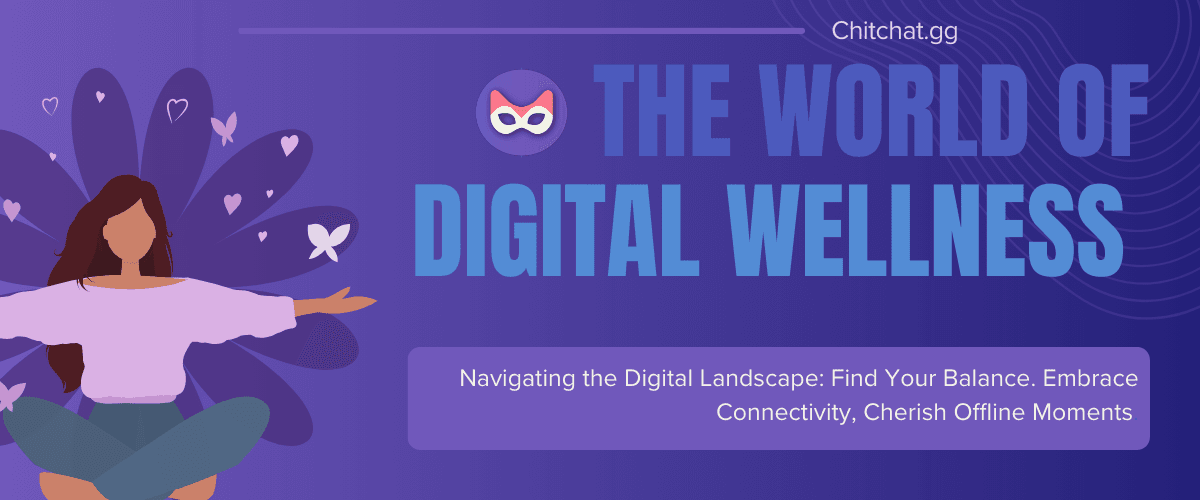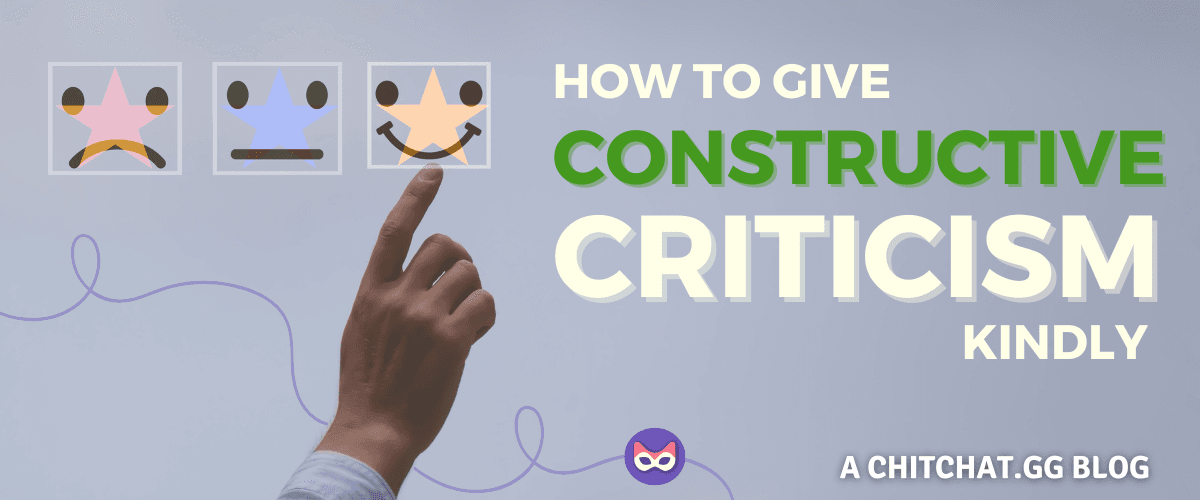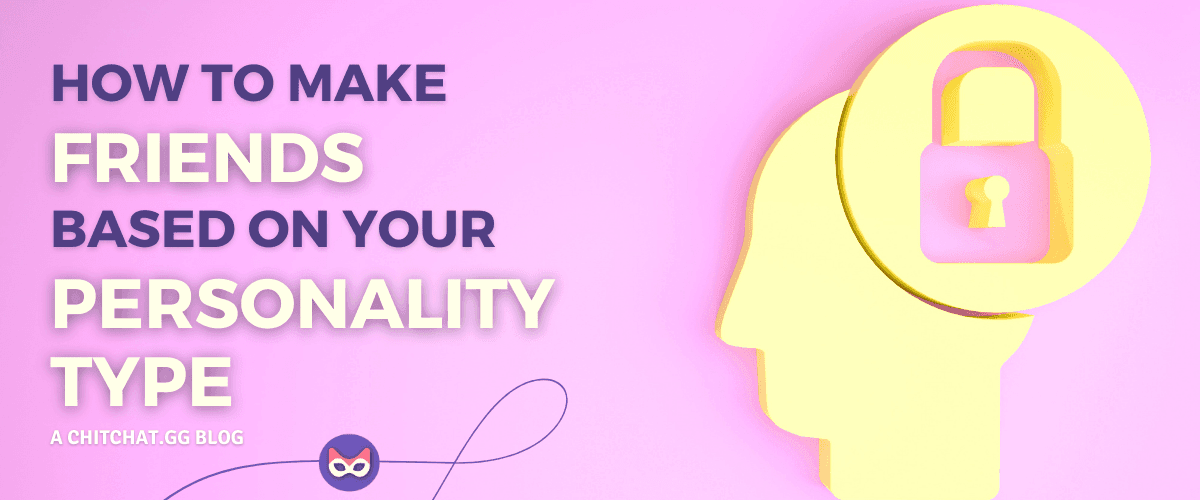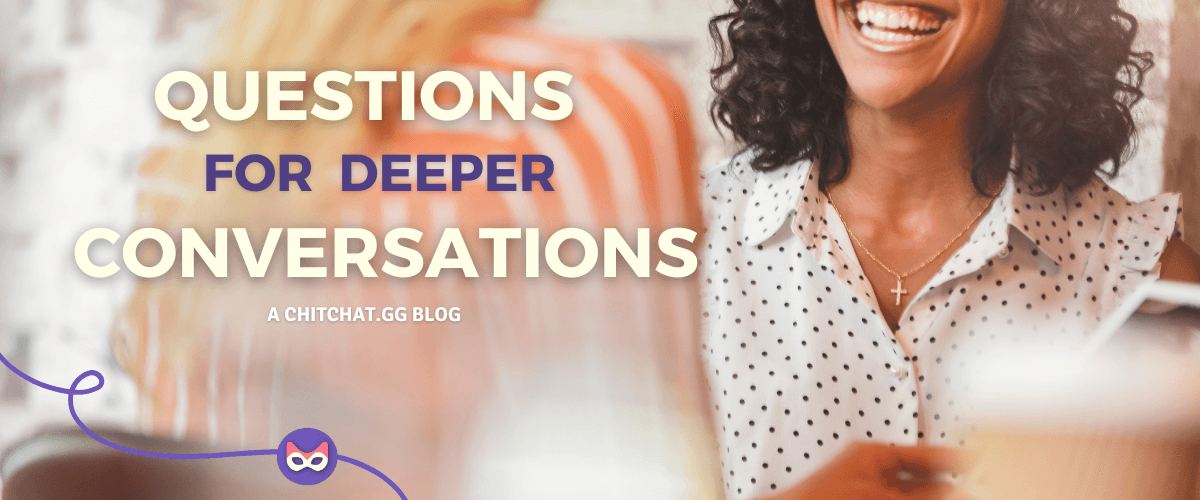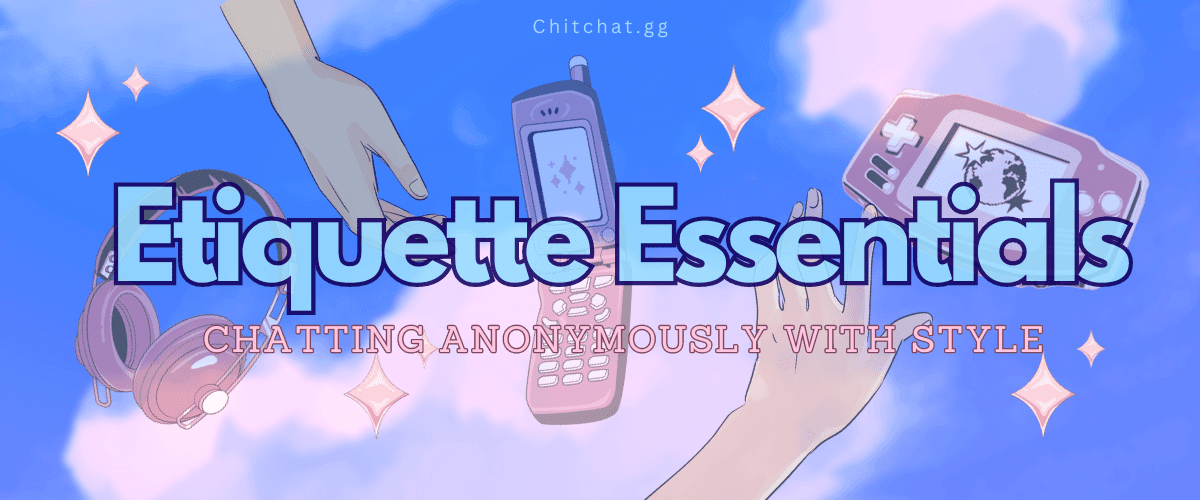
Chatting Anonymously with Style: Etiquette Essentials
- Talina
- Tips & Guides
- 05 Nov, 2023
When I hear about anonymous online chatting, I think about the thrill and intrigue that comes with interacting with strangers online, not knowing who they are or where they're from. Everyone is a blank canvas, and we paint our own images and stories of who they might be based on their words and interactions. It's a world of endless possibilities and connections that wouldn't be possible in our traditional social circles.
This sense of mystery and the cloak of anonymity can sometimes lead to negative behaviors. Some may feel invincible behind the screen and engage in disrespectful or harmful behavior, thinking there will be no consequences. Hence, it's important to remember the human connection in all our interactions, even if they are anonymous. Everyone we interact with online is a real person, and our words can have a real impact on them.
These unspoken rules of chat etiquette serve as a reminder to maintain respect and kindness in our online interactions, to listen before we speak, to respect personal boundaries, and to report any inappropriate behavior. They help maintain the balance between the freedom and excitement of anonymous chats and the need for respectful and meaningful interactions.
Anonymity and Respect
The concept of anonymity in online interactions can be both liberating and daunting. On one hand, it allows us to shed our inhibitions and voice opinions that we might not feel comfortable sharing in our daily life. We can be more open, more daring, and more genuine. It allows us to share pieces of our mind, which under normal circumstances, we might have held back due to fear of judgment or criticism.
However, the same anonymity can often lead some to forget the basic tenets of human interaction - respect and kindness. When we interact with others in an anonymous setting, we must remember that behind the screen is a human being with emotions, experiences, and feelings. Just as we would in a face-to-face conversation, it's important to treat the others with respect.
When we say respect, it does not merely mean avoiding offensive or hurtful comments. It also means acknowledging the other person's opinions, actively listening to their thoughts, and responding in a considerate and thoughtful manner. It's about maintaining a level of decency and courtesy in our interactions, irrespective of whether the other person knows who we are.
Being anonymous should not serve as an excuse to disregard the feelings of others. It should not give us the right to belittle or insult others or to make them feel uncomfortable or threatened. We must remember to extend the same kindness and understanding that we would like to receive from others.
Anonymity can be a wonderful tool to express oneself freely, but it comes with its own set of responsibilities. It is up to us to use it wisely and respectfully.
Listening Before Speaking
In anonymous chats, the art of listening before speaking becomes even more crucial. Without visual cues or prior knowledge of the person, the words typed on the screen are all we have to form an understanding of the conversation. Therefore, taking a moment to read and understand the context before participating can make a significant difference in the interaction.
Starting to type immediately might lead to statements that are out of context or might disrupt the flow of the conversation. It can also lead to misunderstandings, as you might not fully grasp the topic or the tone of the conversation. By taking the time to understand what is being discussed, you can align your responses more effectively with the conversation.
Moreover, listening first can help you build better connections. By showing that you value what others are saying and that you're willing to take the time to understand their point of view, you're fostering a more respectful and thoughtful environment. This can enhance the quality of your interactions, making them more enjoyable and meaningful for everyone involved.
So remember, in the anonymous virtual world where our words represent us, let's ensure we listen before we let our keyboards do the talking.
Being Mindful of Personal Boundaries
In an anonymous chat setting, it's crucial to be mindful of personal boundaries. The veil of anonymity does not grant us the right to delve into others' personal lives without their consent. Each individual has their own comfort zones and private spaces, which need to be respected.
Being mindful of personal boundaries means avoiding initiating or insisting on discussions that involve sensitive personal information, unless the other person is comfortable sharing it. It also means not pressuring someone into disclosing details they might not want to share.
Remember, if someone seems uncomfortable or explicitly asks to change the subject, it's important to respect their wishes promptly. Ignoring such signals can lead to discomfort and can potentially harm the interaction's quality and the overall chat environment.
In the end, anonymous chats should be a space of mutual respect and understanding, a platform where people feel safe and comfortable to express themselves, without the fear of their personal boundaries being crossed.
The Power of Politeness
Politeness plays a pivotal role In the world of anonymous chats when it comes to shaping the nature of interactions. The power of politeness lies in its ability to create a positive and respectful environment. It forms the backbone of communication etiquette, setting the tone for a courteous and respectful exchange of thoughts and ideas.
A polite conversation in an anonymous chat might seem insignificant but it can dramatically alter the way your messages are interpreted. The use of polite words and phrases, such as 'please', 'thank you', or 'excuse me', conveys respect for the other person's thoughts and opinions. It shows that you value their perspective and are open to a fair and balanced exchange of ideas.
Moreover, being polite can diffuse potential conflicts and misunderstandings. In an anonymous setting, where misinterpretations can easily occur due to the lack of non-verbal cues, polite language can serve as a neutralizing force. It can help to maintain the harmony of the conversation, ensuring that it stays respectful and productive.
Politeness also extends to the way we respond to others' ideas and opinions. Even when disagreeing, it's important to do so in a polite and respectful manner. This includes acknowledging the other person's point of view, expressing your disagreement thoughtfully and without belittling their opinion.
So, in the realm of anonymous chats, let's not underestimate the power of politeness. It's a simple tool that can greatly enhance the quality of our interactions, making them more positive, respectful, and enjoyable for everyone involved.
Reporting Inappropriate Behavior
In any online platform, unfortunately, there will be instances where some individuals resort to inappropriate behavior. This could range from offensive language, personal attacks, harassment, or sharing of explicit content. If you encounter any such behavior in your anonymous chats, it is crucial not to turn a blind eye.
Don't hesitate to use the reporting tools available on the platform to notify the administrators about the misconduct. This could involve flagging the inappropriate content or user, or sending a detailed report about the incident. It's important to provide as much information as possible to help the administrators take effective action.
Remember, by reporting inappropriate behavior, you're not just protecting yourself, but also helping to maintain a safe, respectful, and enjoyable environment for everyone in the community. It enables the platform to take prompt action against such misconduct, deterring others from engaging in similar behavior.
In conclusion, while the cloak of anonymity can add a layer of excitement and freedom to our interactions, it's critical not to forget the fundamental principles of respect, kindness, and decency. By adhering to these unspoken rules of chat etiquette, we can ensure our anonymous chats are not only thrilling and liberating, but also respectful, positive and welcoming for all participants.
Why don’t you try it out yourself?

